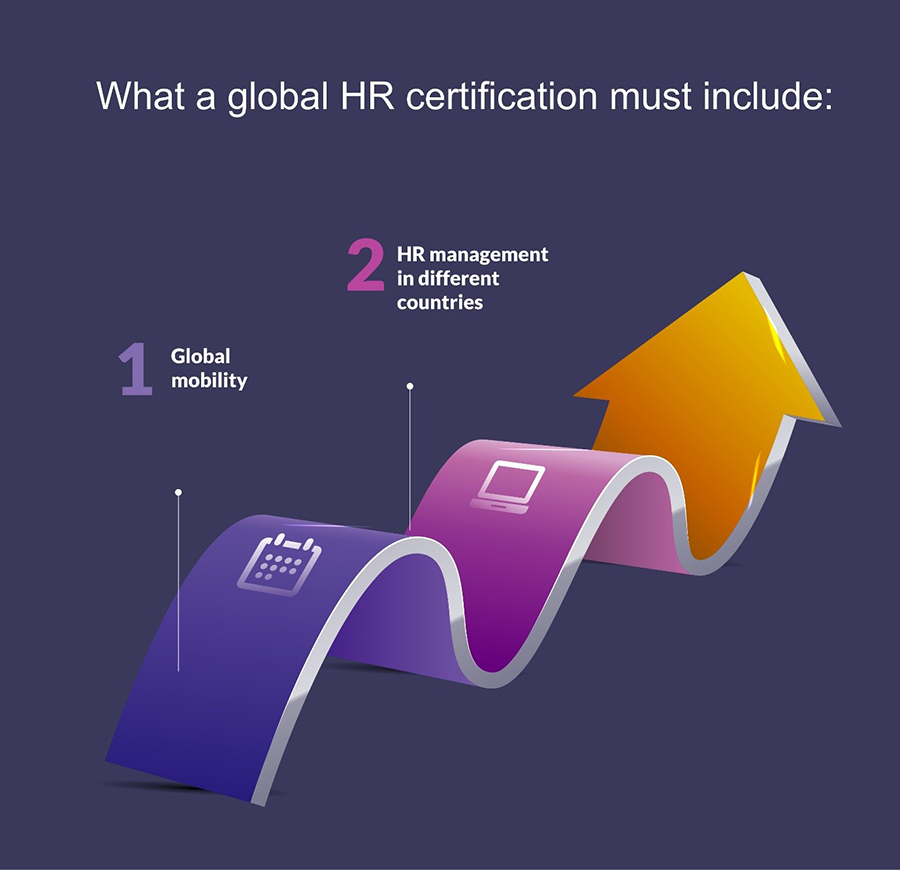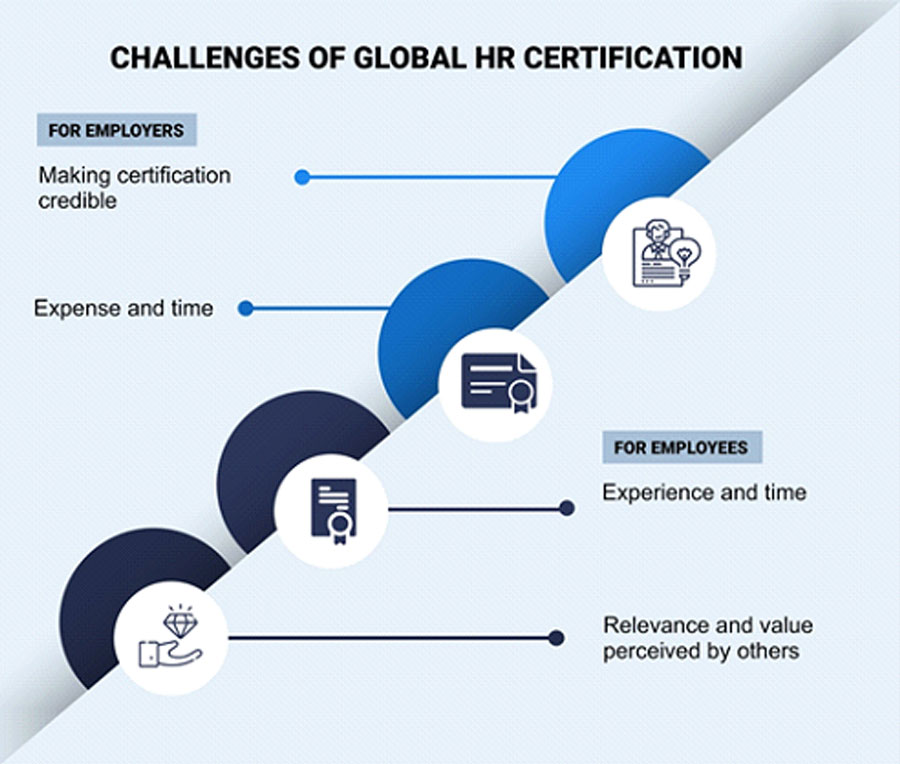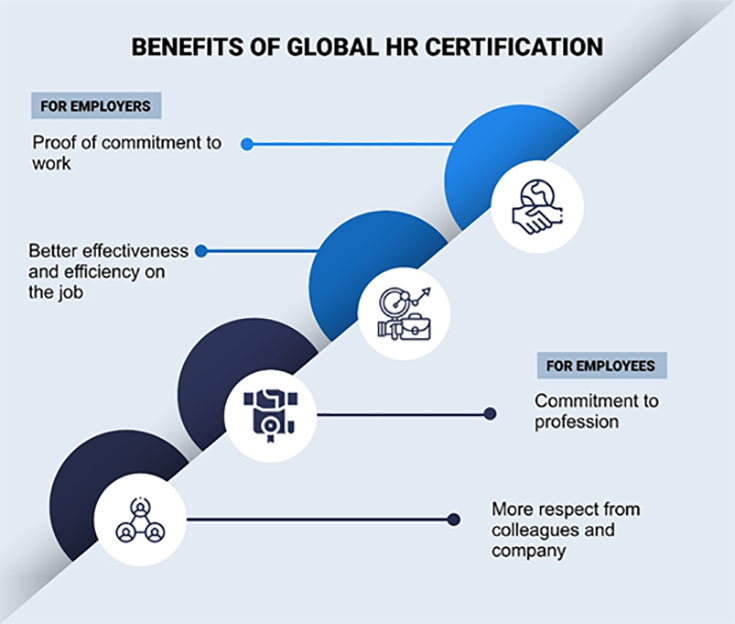
When it comes to HR practices, these do not operate in a standard form and context. Changing local laws and culture as well as business scenarios exert their influence, though the underlying core principles remain the same, backed up by knowledge and evidence gathered over time.
This explains the importance of a global HR professional who, in the course of his/her HR career, plays an important role in the operations of not just the HR department but the entire organization. People remain the most critical organizational resource, and with them being more connected than ever, global HR professionals are in high demand.
In the course of their work, global HR professionals encounter several business issues. The key matters of concern are the following:

The role of a global HR professional is an attractive one to be aspired for in an HR career, and requires standing out from a crowd of aspirants to the role. Most employers seek at least a bachelor’s degree in HR, though there is always the need for something extra to get an edge. It is important for the candidate to be conversant with:
A great option is to look for a global HR certification, which testifies to the candidate possessing the requisite skills and knowhow to tackle HR challenges at the world stage. The best HR certification tests candidates on critical behavioral and technical competencies and ensures that successful candidates have the abilities, judgment, knowledge, and skills to become successful global HR professionals.
In recent years, HR professionals have increasingly recognized how important the right global certifications are for them. With employers competing as seriously as ever to hire the best HR talent, an HR certification has steadily moved from ‘optional’ to ‘preferred’, and now increasingly ‘mandatory’ in job postings. The growth in the tribe of certified HR professionals proves how this credential plays a fundamental role in tackling complex HR challenges across employee benefits, labor relations, payroll, talent management, and other areas.
Undergraduate degrees remain as the single-most important credentials, given that their absence makes it challenging to get an HR job. Once employed, though, a certification in HR became the most valuable and was seen as the most effective at developing the career of an HR professional.
It is important to consider the value of a particular certification in HR outside of the issuing country. By definition, a certification typically is valued within its home country, though it may not be so well known and hence valued in other countries. This often is because of the focus on domestic rules and regulations and the lack of an international focus, leaving the candidate inadequately prepared to handle HR challenges of another country.
The timing is important, given how the world is in the grip of the pandemic. Businesses have halted or slowed down, and life is often at a standstill. The new world of work is dotted with furloughs, layoffs, and remote work. This makes it an even better time to upskill and reskill, and be ready to grab the best professional opportunities when things look up.
The best HR certification at the global stage focuses on basic principles that serve as baselines for practicing HR professionals. The global dimension helps an HR professional to perform well at the international stage, backed by knowledge of a high standard. A certification of this type should cover:

Here are the challenges related to global HR certifications, and how they help employers and employees:


Professionals must maximize the value from global HR certifications.
Looking for a global certification in HR and choosing one are initial concerns; what is also important is to maximize the value obtained. The best ways to do this are:
Many choices are available for the best HR certification at the global level. Here are some great choices:
When it comes to deciding to take up a global HR certification, the choice seemingly is easy, given the immense benefits on offer and the greater chances for professional success. It is important to consider the geography where the person proposes to work and the validity or recognition of the certification therein; also, the eligibility criteria differ vastly.
Career outlooks remain bright for an HR career, more so at the global stage. With globalization being an ever-present challenge and demand for certified professionals being high, the right background makes it much easier to land a coveted HR job fast, particularly in international companies looking to compare workforces across borders and thereby seeking globalized credentials.